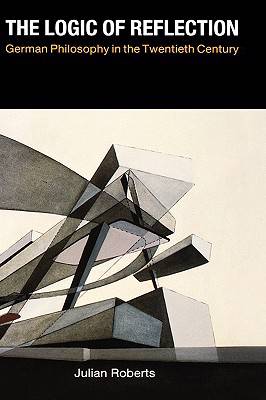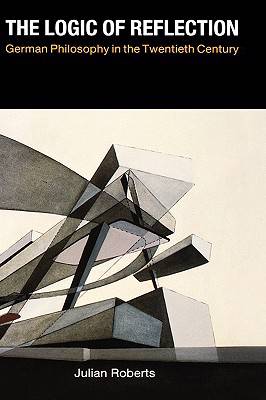
- Afhalen na 1 uur in een winkel met voorraad
- Gratis thuislevering in België vanaf € 30
- Ruim aanbod met 7 miljoen producten
- Afhalen na 1 uur in een winkel met voorraad
- Gratis thuislevering in België vanaf € 30
- Ruim aanbod met 7 miljoen producten
Zoeken
The Logic of Reflection
German Philosophy in the Twentieth Century
Julian Roberts
Hardcover | Engels
€ 161,45
+ 322 punten
Omschrijving
This lucid and original book offers a detailed and critical exposition of German metaphysics and philosophy of logic during the past century. Julian Roberts sets his argument in the context of the current debate between "analytical" and "continental" philosophers. the book centers on the problem of reflection--exploration of the boundaries of rationality, or (in analytical terms) of the "limits of thought"--which Roberts claims lies at the heart of both traditions. Roberts concentrates on the work of Frege, Wittengenstein, Husserl, the Erlangen School, and Habermas. In the course of his examination, however, he also considers philosophers ranging from Russell and Quine to Putnam and Heidegger. Roberts argues that the technical advances of modern logic have not, as is sometimes believed by analytical thinkers, generated uniquely modern problems that can only be dealt with by a correspondingly modernist philosophy, for the problem of reflection was already at the heart of Kant's critical project and of his confrontation with Leibniz. If we recover this earlier debate, says Roberts, we can develop a more adequate understanding not merely of its echoes in the twentieth century, but of the role and contribution of metaphysics and of philosophy in general.
Specificaties
Betrokkenen
- Auteur(s):
- Uitgeverij:
Inhoud
- Aantal bladzijden:
- 256
- Taal:
- Engels
Eigenschappen
- Productcode (EAN):
- 9780300052077
- Verschijningsdatum:
- 24/06/1992
- Uitvoering:
- Hardcover
- Formaat:
- Genaaid
- Afmetingen:
- 162 mm x 242 mm
- Gewicht:
- 725 g

Alleen bij Standaard Boekhandel
+ 322 punten op je klantenkaart van Standaard Boekhandel
Beoordelingen
We publiceren alleen reviews die voldoen aan de voorwaarden voor reviews. Bekijk onze voorwaarden voor reviews.











